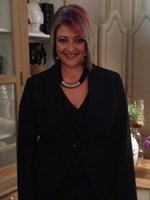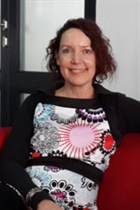
Top stories






More news
















Logistics & Transport
Uganda plans new rail link to Tanzania for mineral export boost









And every month, we enter the same debate - which is that while we understand that ROI is a necessity, the increasing complexity of online measurement appears to be reaching standards of folly, with each and every monitoring company utilising their own algorithm, measurement standard and Rand value estimate.
This has led to interesting discussions on coverage for projects over a number of years when directly compared. "So, in 2012, we achieved R4,000,000 worth of online coverage but in 2014, we achieved R50,000(with 98 more articles and on very popular platforms), so we failed?" And this challenge is made more complex when multiple media monitoring suppliers are used. Try Newsclip reporting versus Meltwater for example - that makes for interesting reading and even more interesting board presentations where once again, the comparative query is raised. How can we, as a PR agency, provide accurate reporting to our clients when measurement tools are not standardised in any way?
Although we believe that Advertising Value Equivalents are not the most sensible of measurement standards, we can understand the value of them for broadcast and print coverage reporting, but the endless attempts to fit online into this measurement category is one that we have no choice but to reject.
And so enters MozRank. A mosquito sounding measurement term primarily used for Search Engine Optimisation, this Source Ranking data feed is the answer to many of our monitoring prayers. It works as follows:
MozRank refers to Moz's general, logarithmically scaled 10-point measure of global link authority (popularity). MozRank is very similar in purpose to the measures of static importance (which means importance independent of a specific query) that are used by the search engines (e.g., Google's Page Rank). Search engines often rank pages with higher global link authority ahead of pages with lower authority. Because measures like MozRank are global and static, this ranking power applies to a broad range of search queries, rather than pages optimised specifically for a particular keyword.
The intuition behind MozRank is to leverage the democratic nature of the web. Every page has a vote and they can cast that vote by linking out to other web pages. Each time they link out all of the other links (votes) on the same page they are slightly diluted. Thus, pages which link to many other pages aren't able to overwhelm the votes from pages that only link to a few other pages. Otherwise, if one page contained 1000 links, it would unfairly have more votes than a page with only 10 links.

The takeaway is that a given web page has only a quantifiable amount of link juice (ranking power) to spread via links (votes). Pages that receive a lot of links (votes) are considered more authoritative and are able to more authoritatively endorse pages they link to.
In order to ensure we give our clients the most accurate and useful data on online reporting, we've linked MozRank to our monitoring system. The system operates on a baseline of R5,000 per MozRank e.g. MozRank of 1 = R5,000. MozRank of 10 = R50,000. As the online landscape constantly changes, so does the MozRank, so a site ranking 5.68 when your article was published might rank higher or lower when the next one is. It's a dynamic system - just as digital is. Therefore this measurement unit makes the most sense to us. In essence, it's measuring engagement, popularity and hopefully (unless the audience is one that we truly don't understand), target market reach. We are able to target more specifically - we're able to measure more accurately - and now all we have to get rid of is that AVE for online conversation.
According to Tonya Khoury, MD of ROi Africa, South Africa's thought leader on media monitoring and its measurement, "AVE has little credibility in my opinion" and she states two simple examples:
1. Negative brand exposure can cripple a company. This is a fact. If a clever PR manages to keep a brand out of negative focus whilst the rest of the market is under fire, AVE tells us that this PR effort is worth nothing? Really?
2. Let's take one media platform and evaluate the evolution of AVE as a measurement. Print, supported by over 12 million South Africans, but also subject to a reduced advertising revenue model is a perfect benchmark to see if AVE works over time. We have seen advertising rates in this platform reduce over the past decade with the onset of digital media's landslide, however there is still an enormous fight for content in the print space. Print coverage is valuable. If we are basing our analytics on the AVE of print, an advert produced on the front page of a daily newspaper five years ago, is worth less today. Are we saying that the editorial content of the front page of the same newspaper over five years has reduced in value?
Khoury believes that "paid for media does not and will never equal EARNED media. That is the bottom line."
With that said, Khoury also believes that if media monitors do not provide rand and cents measurement they would not have a business model, which forces them to offer an evaluation of the coverage in financial terms.
And here is Khoury's solution: "Make AVE one measurement of many, yes there is an advertisement value equivalent to your coverage, but let's ask ourselves as an intelligent PR industry:
• Did I hit the target audience that is relevant?
• How well is that particular platform being received by market?
• Did my key message get across?
• Did people start talking (or not) about my message?
• Did I hit journalists that are influential enough for my message?
Add all these elements into the same "pot" as AVE and you have true ROI."
So, MANGO-OMC, as a PR company, is working with ROi Africa on a system that enables us to do exactly that. Measure engagement, fulfil the rand value criteria with a benchmark that makes sense to us and embark on reporting that we sincerely hope will negate the monthly query on online ROI.
